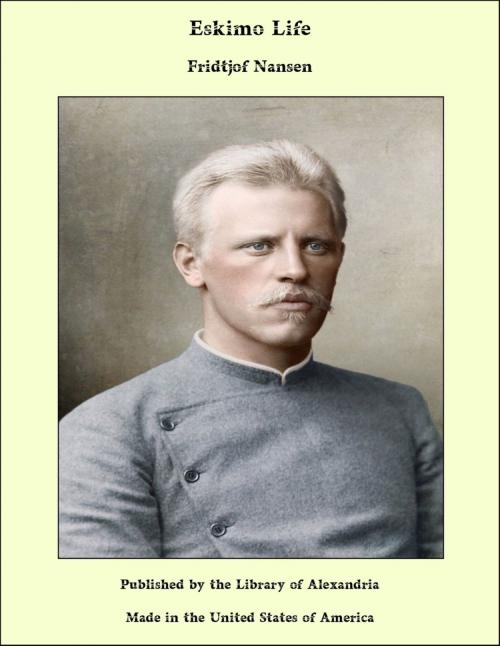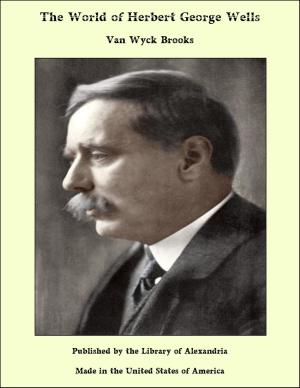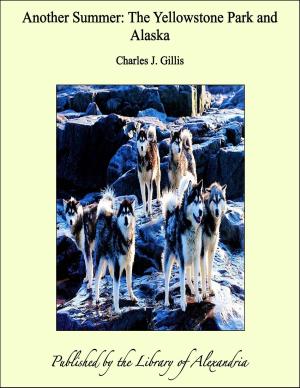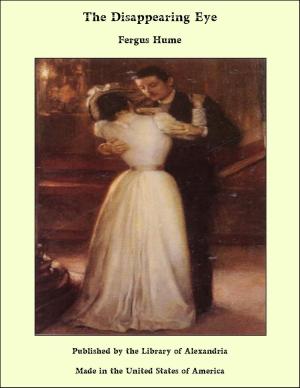| Author: | Fridtjof Nansen | ISBN: | 9781465544896 |
| Publisher: | Library of Alexandria | Publication: | March 8, 2015 |
| Imprint: | Language: | English |
| Author: | Fridtjof Nansen |
| ISBN: | 9781465544896 |
| Publisher: | Library of Alexandria |
| Publication: | March 8, 2015 |
| Imprint: | |
| Language: | English |
Greenland is in a peculiar manner associated with Norway and with the Norwegians. Our forefathers were the first Europeans who found their way to its shores. In their open vessels the old Vikings made their daring voyages, through tempests and drift-ice, to this distant land of snows, settled there throughout several centuries, and added it to the domain of the Norwegian crown. After the memory of its existence had practically passed away, it was again one of our countrymen who, on behalf of a Norwegian company, founded the second European settlement of the country. It is poor, this land of the Eskimo, which we have taken from him; it has neither timber nor gold to offer us—it is naked, lonely, like no other land inhabited of man. But in all its naked poverty, how beautiful it is! If Norway is glorious, Greenland is in truth no less so. When one has once seen it, how dear to him is its recollection! I do not know if others feel as I do, but for me it is touched with all the dream-like beauty of the fairyland of my childish imagination. It seems as though I there found our own Norwegian scenery repeated in still nobler, purer forms. It is strong and wild, this Nature, like a saga of antiquity carven in ice and stone, yet with moods of lyric delicacy and refinement. It is like cold steel with the shimmering colours of a sunlit cloud playing through it. When I see glaciers and ice-mountains, my thoughts fly to Greenland where the glaciers are vaster than anywhere else, where the ice-mountains jut into a sea covered with icebergs and drift-ice. When I hear loud encomiums on the progress of our society, its great men and their great deeds, my thoughts revert to the boundless snow-fields stretching white and serene in an unbroken sweep from sea to sea, high over what have once been fruitful valleys and mountains. Some day, perhaps, a similar snow-field will cover us all.
Greenland is in a peculiar manner associated with Norway and with the Norwegians. Our forefathers were the first Europeans who found their way to its shores. In their open vessels the old Vikings made their daring voyages, through tempests and drift-ice, to this distant land of snows, settled there throughout several centuries, and added it to the domain of the Norwegian crown. After the memory of its existence had practically passed away, it was again one of our countrymen who, on behalf of a Norwegian company, founded the second European settlement of the country. It is poor, this land of the Eskimo, which we have taken from him; it has neither timber nor gold to offer us—it is naked, lonely, like no other land inhabited of man. But in all its naked poverty, how beautiful it is! If Norway is glorious, Greenland is in truth no less so. When one has once seen it, how dear to him is its recollection! I do not know if others feel as I do, but for me it is touched with all the dream-like beauty of the fairyland of my childish imagination. It seems as though I there found our own Norwegian scenery repeated in still nobler, purer forms. It is strong and wild, this Nature, like a saga of antiquity carven in ice and stone, yet with moods of lyric delicacy and refinement. It is like cold steel with the shimmering colours of a sunlit cloud playing through it. When I see glaciers and ice-mountains, my thoughts fly to Greenland where the glaciers are vaster than anywhere else, where the ice-mountains jut into a sea covered with icebergs and drift-ice. When I hear loud encomiums on the progress of our society, its great men and their great deeds, my thoughts revert to the boundless snow-fields stretching white and serene in an unbroken sweep from sea to sea, high over what have once been fruitful valleys and mountains. Some day, perhaps, a similar snow-field will cover us all.















